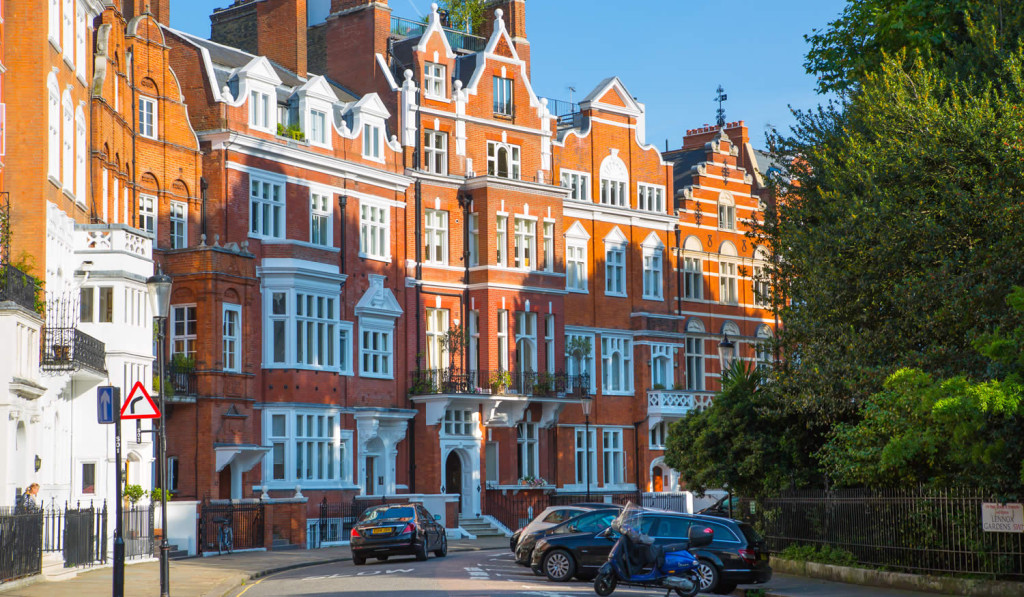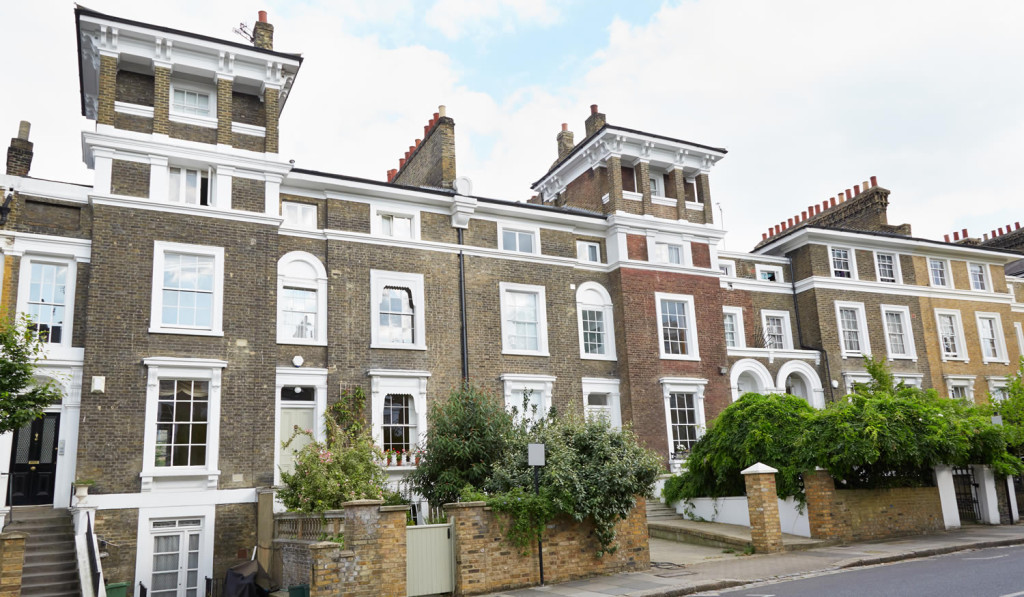
With low interest rates from lenders remortgage buyers in London are locking competitive deals to reduce monthly repayment costs.

With low interest rates from lenders remortgage buyers in London are locking competitive deals to reduce monthly repayment costs.

Numbers of first time buyers have reached 372,000 accounting for the majority of home purchases since 1995, says Halifax.

The number of property millionaires in London have decreased by 35,000 as house prices in the capital reduce in 2018.
For homeowners their property is usually their most valuable asset and with rising house prices capital can accumulate over time giving them an opportunity for capital raising.
Capital raising is particularly beneficial to older homeowners as they are most likely to have seen a rise in the value of their home, unlike first time buyers that start with small deposits and have little equity.
If you bought your home ten years ago and live in southern England it is likely the value has risen considerably. You may have over 50% equity with the balance as a mortgage to a lender.
With independent advice from London City Mortgages we can help you raise capital from your home which you can use for many different purposes. We can help you find the best remortgage deal and make the online application process easy for you.
There are many reasons why you would want to raise capital from your home which could include renovating your home or buying another property.
| Reasons for raising capital from your home |
|---|
| Adding an extension to your home |
| Home improvements |
| New kitchen or bathroom |
| Deposit for a buy-to-let property |
| Paying off debts |
| Buying a parking space |
| Let-to-buy a new home |
| Divorce settlement |
If you have a financial problem, raising capital from a mortgage can be a cost effective option in the short term as interest rates are low compared to the cost of an unsecured loan.
You may already have a mortgage with time left on a preferential rate and high penalties to change the arrangement. To release capital you would secure an advance from your existing lender which is an additional mortgage running alongside your main mortgage.
By leaving this until your mortgage deal ends, as a remortgage buyer you can select a new lender and at the same time raise the capital you need so you only have one mortgage arranged with a low interest fixed or tracker deal.
If you have time remaining on your preferential rate you would pay a penalty to remortgage so you can consider a further advance from your existing lender.
The advance would be a new mortgage typically with a different rate to your existing mortgage and is worth considering if the rates are competitive.
You can spread the mortgage payments over a longer term with competitive interest rates so the payments would be lower than an unsecured personal loans or credit cards.
Your lender would need to apply for the mortgage and this would include the standard affordability checks to meet their lending criteria.
At the end of the process you would have two mortgages and the only way to merge these in the future would be to remortgage to another lender.
Lenders will treat capital raising like any other mortgage and will do affordability checks to ensure you can afford the repayments. This will include stress testing to ensure you can still afford the mortgage if interest rates rise in the future.
You will need a good credit record which you can check before consider capital raising through the credit agencies Experian or Equifax.
There will be a minimum amount you can borrow such as £20,000 and a maximum amount based on the loan to value (LTV) such as 90% of the value of the property although these figures will vary from each lender.
If you are a buy-to-let investor or need a let-to-buy mortgage the lender would require you to have a 25% deposit on the value of the property and the 75% balance can be an interest only mortgage.
The level of the rental income depends on the size of the deposit and is typically 145% of the monthly payment at a notional rate, such as 5.5% interest even if the interest you pay is much less than this figure.
For example, if you buy a property for £200,000 you would need a deposit of £50,000. With the mortgage of £150,000 the lender would need a rental income of no less than 5.5% times 145% or £11,962 per year or £997 per month.
Age can limit your ability to raise capital using a mortgage as for many mainstream lenders this is restricted to age 75 although a smaller number do offer a maximum lending age of up to 85.
This means the mortgage must be repaid by the time you reach the age limit and if the term is short the repayments you make will be high.
If you are older many lenders would also need to know about your pension income to ensure you can afford the repayments to the end of the term and this would restrict the amount you can borrow.
An alternative to the traditional borrowing is a lifetime mortgage and this is available to anyone over the age of 55 although many homeowners are between 65 and 75 years of age.
This is also known as equity release and allows you to access the value in your home without the need of affordability checks which can benefit people with small incomes in retirement.
You have a choice to pay interest off each year or let the interest roll-up over time which would mean compound interest rate and a rapid build-up of debt.
Even so equity release can be attractive to release capital which can be used for any purpose including gifting to children and grandchildren.
The rise in house prices has made it difficult for people to buy their first home resulting in the average age of a first time buyer rise to 30 and a home mover to 39 years of age.
Changes in regulations after the financial crisis has placed more emphasis on lenders to check affordability of borrowers when they apply for a mortgage and their ability to pay back the loan at an age limit, making it harder to borrow after retirement.
Many homeowners at the end of their mortgage term must either pay back the loan as a lump sum or sell their property and downsize, however, it is possible to re-mortgage to a new lender or consider equity release.
There are now more lenders willing to extending the age limits beyond normal retirement age of 65 and equity release plans that do not require you pay back either the interest or the loan during your lifetime allowing you to stay in your home.
With independent advice from London City Mortgages we can help you find the mortgage to allow you to remain in your home. We can help you find the best remortgage deal or for older homeowners use equity release and make the online application process easy for you.
The age limit set by a lenders means you must pay back your mortgage by a certain age, such as age 75. The shorter the number of years to this limit the higher will be the monthly payment and if you are in retirement this may be more than you can afford.
Here is an example if your property is worth £300,000, your mortgage is £100,000 and you re-mortgage with a preferential rate of 1.49% fixed for two years which must be repaid by age 75.
If you are currently aged 55 the term is twenty years and your monthly payments are £482 per month, however, if you are aged 65 the term is only ten years with payments almost twice as much at £897 per month.
Due to changing demographics with people working longer many have no set retirement age and want to continue to pay their mortgage until they are older.
Lenders are raising their upper age limits for first time buyers, home movers and remortgage buyers and there are a number of building societies that have no age limits.
| Building societies with no age limits |
|
|---|---|
| Bath | Buckinghamshire |
| Cambridge | Holmesdale |
| Loughborough | Monmouthshire |
| National Counties | Saffron |
Many lenders now realise a need for change and large banks and building Societies are raising the age limits although there remains the requirement for borrowers to demonstrate affordability for the mortgage.
Rising house prices mean first time buyers, home movers and re-mortgage buyers are now much older and have larger mortgage debts to repay which may not be possible before the traditional retirement age of 65 years.
A report from the Building Societies Association (BSA) shows the UK has 11.6 million people over the age of 65, which could rise to 16 million in the next twenty years.
Since the Mortgage Market Review (MMR) in 2014 banks and building societies have been required to have stricter lending requirements in terms of affordability and how the mortgage is repaid.
As a result this approach reduced the willingness to lend to older homeowners such as remortgage buyers and home movers.
According to the BSA there are 33 societies who have chosen to increase their upper lending age limit to 80, 85 and here as some examples:
| Lender |
Maximum lending age |
|---|---|
| Natinowide | 85 |
| Marsden | 85 |
| Leeds | 80 |
| Furness | 80 |
| Halifax | 80 |
| Santander | 75 |
| Virgin Money | 75 |
| Lloyds | 75 |
| Clydesdale | 75 |
| RBS | 70 |
| Barclays | 70 |
There may be further restrictions for older borrowers such as the loan limited to £150,000 for new borrowing and a maximum 60% loan to value (LTV).
Equity release is offered from age 55 although the amount you can borrow increases from 31% with the youngest ages to about 63% for those aged 80.
This approach is popular if you have already paid off your mortgage, are retired and perhaps your income no longer stretches as far so extra income or capital sums would be useful for maintaining your standard of living.
It can be used if you need to repay your mortgage, are unlikely to meet the lenders affordability tests and do not want to make any monthly interest payments.
The main reasons people consider equity release and the percentage of those asked that agreed this is what they would use the money for are as follows:
| Agreed |
Main reason for equity release |
|---|---|
| 63% | Home and garden improvements |
| 31% | Holiday of a lifetime |
| 30% | Pay off debts or personal loans |
| 23% | Help family members |
| 22% | Pay off interest only mortgages |
| 16% | Meet everyday expenses |
Equity release products, also called a lifetime mortgage, do not require any proof of income and you can either pay interest as you go along or roll up the interest for your lifetime.
The benefit of these plans is that you can live in your home for your lifetime or until you move to a residential care home at which point the property will be sold and the loan repaid.
Interest rates are higher than a conventional mortgage with the lowest interest rates from 3.0% variable and fixed rate from 3.79%.
As an example, if you released £100,000 using equity release at a fixed rate of 4.46% the amount you would owe in ten years would increase to £156,000 and by year 15 this would be £195,000.
Unlike a residential mortgage, if you have any medical conditions these can be taken account and allow you to take a higher loan as a proportion to property value.
If you do not need to take the maximum allowable loan using equity release it is possible to agree the initial advance and take a drawdown for the amount you want leaving you the opportunity to take further amounts when needed, helping you to reduce the interest costs over time.

If you are single and looking to step on the property ladder the most affordable homes can be found in outer London boroughs.

City house prices have outpaced the country with Chichester recording a 62% rise in property values over the last five years.

The number of residential mortgages for older homeowners has increased as lenders relax maximum ages to 80 years and over.